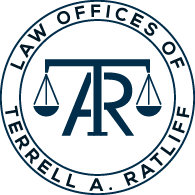Building a Defense: What We Do
When a student faces disciplinary action, the stakes can feel overwhelming. Whether the case involves a code of conduct violation, Title IX investigation, or academic dishonesty allegation, having an experienced advocate can make all the difference. My approach is designed to protect your rights, ensure fairness, and secure the best possible outcome by providing personalized, step-by-step guidance at every stage of the process.
Step-by-Step Defense Process
Reviewing and Analyzing Allegations
The first step in building a strong defense is thoroughly reviewing the allegations. I will examine the notification documents, the specific policies cited, and any evidence the school has presented. This critical analysis helps identify weaknesses in the case against you and potential procedural errors that can be challenged.Gathering and Presenting Evidence
A successful defense depends on a strong evidentiary foundation. I work with students to gather critical evidence, such as emails, text messages, and witness statements, that can support their case. Whether addressing an accusation of plagiarism or defending against a Title IX claim, I ensure that every piece of evidence is presented effectively to build a compelling narrative.Preparing Students for Hearings and Appeals
Disciplinary hearings can be intimidating, especially for students who are unfamiliar with the process. I prepare students by explaining what to expect, helping them practice responses to questions, and ensuring they feel confident presenting their side of the story. For appeals, I craft persuasive arguments that highlight procedural errors, new evidence, or disproportionate sanctions.Negotiating Resolutions Before Hearings
In many cases, it’s possible to resolve the matter before it reaches a formal hearing. I work to negotiate outcomes that avoid harsh penalties, such as suspension or expulsion, by presenting alternatives that satisfy the institution while protecting the student’s future. These resolutions can save time, reduce stress, and minimize long-term consequences.Advocating for Fairness and Due Process
Schools have a responsibility to ensure fairness in their disciplinary processes, but that responsibility is not always met. I advocate for fairness by challenging biased investigations, ensuring access to evidence, and demanding equal opportunities for the student to present their case. My goal is to ensure that the student is treated with respect and that their rights are upheld at every stage.Tailoring the Defense to Each Unique Case
No two cases are the same, and a one-size-fits-all approach won’t work. I take the time to understand the unique circumstances of each case, including the student’s background, goals, and the specific nature of the allegations. This personalized strategy allows me to craft a defense that is as effective as it is empathetic.
Why It Matters
Facing a disciplinary process is not just about clearing your name—it’s about protecting your future. From avoiding the loss of scholarships and campus housing to ensuring your academic record remains intact, my role is to safeguard your opportunities and help you move forward. Together, we will navigate the challenges of this process with confidence and achieve the best possible outcome.
